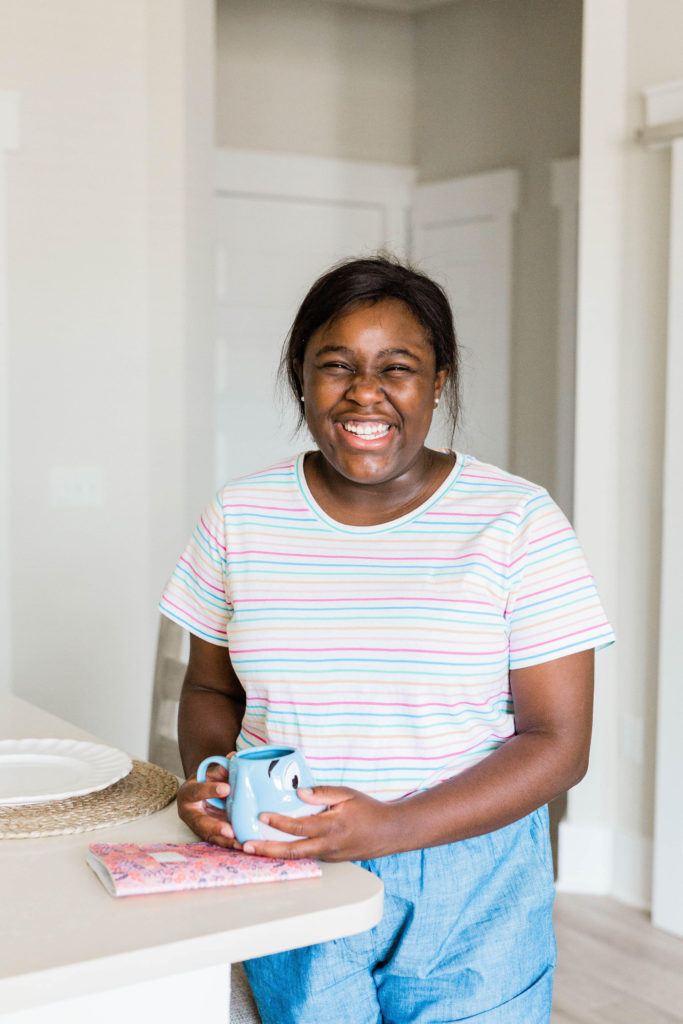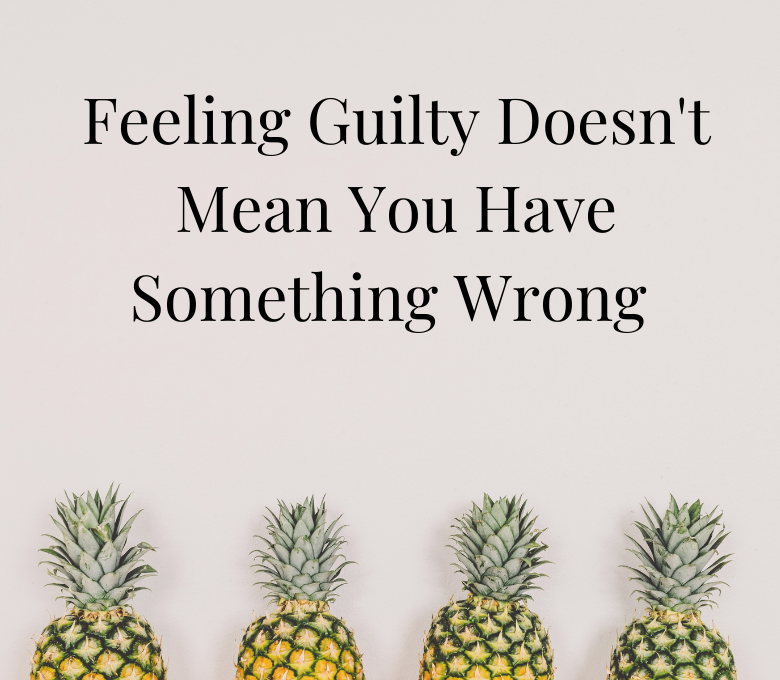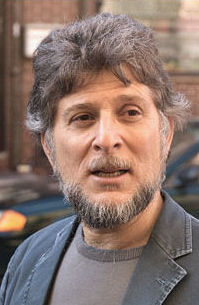
Welcome back to another episode of Your Anxiety Toolkit Podcast. Today on the podcast we have a wonderful interview with OCD and mental health advocate Mimi Cole. Mimi is currently working on her graduate degree in counseling and she is here to talk with us today about her lived experience with OCD, scrupulosity, and an eating disorder. Mimi so beautifully states that she wants to share her story in order to increase awareness, education and resources while decreasing the shame and misconceptions surrounding OCD.
Mimi shares her OCD story, specifically her struggles with scrupulosity. She describes how her religion and her religious upbringing became intertwined with perfectionism and OCD. She shares a bit about her exposures for scrupulosity and what motivated her to begin ERP.
Mimi also describes her experience with orthorexia and her obsessions surrounding clean eating and how she feels this became a link between OCD and an eating disorder. We discuss that intersection between body image, clean eating obsessions, restrictive food intake and how these are all connected to OCD. Mimi is currently exploring a research project on eating disorders as a coping mechanism for OCD.
Towards the end of the interview, Mimi shares how she manages her OCD in recovery. She talks about self-compassion and accepting our common humanity as a few tools she uses to help.
This interview is full of such great information particularly about scrupulosity, a theme of OCD that is not often discussed. I found it so uplifting and informative and I think you will as well.
Mimi's instagram @the.lovelybecoming
Mimi's website www.mimi-cole.com
ERP School, BFRB School and Mindfulness School for OCD are open for purchase. Click here for more information.
Additional exciting news! ERP School is now CEU approved which means that it is an accredited course for therapists and mental health professionals to take towards their continuing education credit hours. Please click here for more information.

Welcome back to another episode of Your Anxiety Toolkit Podcast. Today's episode comes out of a conversation I had with a client and I thought you all might need to hear this as well. Today we are going to be talking about guilt and this idea that feeling guilty doesn't mean you have done something wrong.
I know that idea might feel strange. When we are feeling guilty, we usually assume that means we have done something wrong. Try thinking of guilt as an intersection. When the feeling arises you can chose to take the road that you have done something wrong or you can go in a different direction and try asking yourself "Is this real? Is there actually evidence that I have done something wrong? Is there a chance that my brain has made a mistake and set off the guilt alarm without there being a problem?" If you see that there is no evidence that you did something wrong, you can try practicing compassion and mindfulness and just allow those feelings of guilt to be there. If you recognize that yes you made a mistake then you can work to address the situation.
A lot of us simply have a little glitch in the guilt system and our guilt gets fired off a bit too easily, too often, and at times where guilt isn't really that appropriate. Guilt is just an emotion and when it comes up it provides an opportunity for growth. Guilt can be painful and it can make us feel bad about ourselves, but remember that you have a choice when guilt shows up. You can choose that road of compassion and simply allow the emotion of guilt to be there.
ERP School, BFRB School and Mindfulness School for OCD are open for purchase. Click here for more information.
Additional exciting news! ERP School is now CEU approved which means that it is an accredited course for therapists and mental health professionals to take towards their continuing education credit hours. Please click here for more information.

Welcome back to another episode of Your Anxiety Toolkit. Today on the podcast, I am so excited to interview Dr. Jonathan Grayson, a psychologist who has been specializing in the treatment of OCD for more than 40 years. He is also the author of Freedom from Obsessive-Compulsive Disorder and founder of The Grayson LA Treatment Center for Anxiety and OCD. In this interview, Dr. Grayson discusses the power of embracing uncertainty in the treatment of Obsessive Compulsive Disorder.
In the beginning of our conversation, Dr. Grayson discusses how he explains OCD to his new clients. He shares that the core of OCD is trying to be absolutely certain and that the goal of treatment is to learn to live with that uncertainty in the same way that we live with all of the many uncertainties of life.
We then go on to discuss the ways he helps motivate his clients to do ERP and to begin embracing that uncertainty. He has his clients fill out a form that asks certain questions including the one that he finds most critical "Why would I take this risk?" He also has his clients write down "What have you lost to OCD?" "How have you hurt the people you love because of OCD?" and "What do you hope to do with your life when you are free from OCD?" I found another question he asks his clients to be particularly helpful. When asking clients to begin embracing uncertainty and to take the risk that X may happen, he asks them to imagine how you will attempt to cope if the most terrible thing you can imagine actually happens.
We also have a great discussion about mindfulness and compassion and how he uses both in his practice. This interview is full of so many fantastic insights. I learned so much myself and I hope that you will find it as enjoyable and informative.
FreedomfromOCD.com- You can purchase Freedom from Obsessive Compulsive Disorder as well as download Dr. Grayson's forms.
The Grayson LA Treatment Center for Anxiety & OCD
ERP School, BFRB School and Mindfulness School for OCD are open for purchase. Click here for more information.
Additional exciting news! ERP School is now CEU approved which means that it is an accredited course for therapists and mental health professionals to take towards their continuing education credit hours. Please click here for more information.

I know it continues to be a really tough time for everyone. I am definitely not immune to those struggles. In taking time off, I came to a realization about why I was having such a hard time. It wasn't about COVID or anxiety or stress. I was struggling because I had been having a mental tantrum inside my own head 24/7. My mental tantrum sounded something like this "It's not fair. This should not be happening. I'm supposed to be healing. This isn't the way it should be. It's not fair." I had no idea I was even doing this. I was having an adult sized tantrum in my head that no one else could see. Now it is important to understand that all of these thoughts are valid. It is a tough time and people are suffering, but the way I was saying it was definitely not validating.
I approached this by turning back to what has been the foundation of my recovery, something I learned about 15 years ago. It is rooted in the principles of Buddhism and that is 'in life there is suffering. It is not the suffering that causes the pain. It is the resistance to the suffering that causes you the pain.' So for me in this situation, my resistance or my mental tantrum was actually what was causing me the most pain.
Recognizing this and having compassion for myself is so important here. And asking myself is there a way that I can take off my stomping shoes and stop resisting the fact that this is a hard time?
We really do have a choice. Do we meet hard times with tantrums and resistance or do we meet those hard times with compassion, validation, consideration and respect? In these moments now when I still find myself throwing that mental tantrum, I simply note it and say "Ok I see what's happening and how am I going to deal with it? Am I going to keep throwing this tantrum or am I going to hold space for the fact that this tantrum is representing how hard things are and how much I am still struggling?"
This has been such a huge lesson for me during COVID-19. I hope it is helpful for you as well as we are all still navigating these difficult and challenging times.
ERP School, BFRB School and Mindfulness School for OCD are open for purchase. Click here for more information.
Additional exciting news! ERP School is now CEU approved which means that it is an accredited course for therapists and mental health professionals to take towards their continuing education credit hours. Please click here for more information.